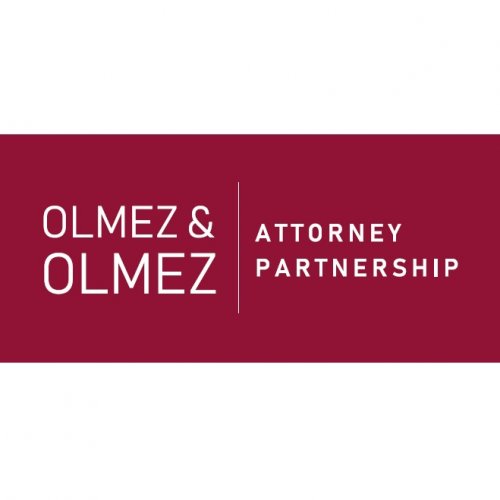Best Nonprofit & Charitable Organizations Lawyers in Istanbul
Share your needs with us, get contacted by law firms.
Free. Takes 2 min.
List of the best lawyers in Istanbul, Turkey
About Nonprofit & Charitable Organizations Law in Istanbul, Turkey
Nonprofit and charitable organizations play a significant role in Turkish society, addressing varied social needs and contributing to community development. In Istanbul, as the largest city in Turkey, these organizations range from educational foundations to humanitarian aid providers. The legal framework governing these entities ensures they operate ethically and transparently, fostering public trust and compliance with national regulations. Turkish laws require nonprofit organizations to conform to specific registration, taxation, and operational guidelines to legitimize their operations. The complexity of these laws necessitates awareness and understanding to ensure proper legal compliance and successful fulfillment of their missions.
Why You May Need a Lawyer
Engaging a lawyer can be crucial for nonprofit organizations at various stages of their lifecycle. Some common situations where legal help might be necessary include:
- Formation and Registration: Legal guidance is often needed to navigate the complex procedures and requirements for legally establishing an organization.
- Compliance Issues: Nonprofits must adhere to a variety of regulations and reporting requirements that may necessitate legal expertise.
- Taxation Matters: Understanding tax obligations and exemptions applicable to nonprofits requires knowledgeable legal input.
- Contractual Agreements: Legal advice is important when drafting agreements with donors, partners, or employees to ensure compliance and protect the organization’s interests.
- Employment Law: Ensuring nonprofit labor practices meet Turkish employment law standards can require legal intervention.
- Governance and Policy Formation: Assistance in crafting bylaws and internal policies to ensure ethical operation and governance.
Local Laws Overview
Istanbul, as part of Turkey, is subject to national laws governing nonprofits, primarily codified in the Turkish Civil Code. Key aspects include:
- Registration: Organizations must register with the Directorate General for Foundations or local governorates, providing necessary documentation and financial details.
- Governance: Nonprofits must establish a hierarchy of management and governance that complies with legal standards to ensure accountability.
- Taxation: Nonprofits may be eligible for tax exemptions but must apply and qualify under specific conditions as outlined by tax authorities.
- Reporting Requirements: Regular submission of activity reports is mandatory, reflecting financial health, operational scope, and compliance with legal stipulations.
Frequently Asked Questions
How do I start a nonprofit organization in Istanbul?
Starting a nonprofit in Istanbul involves registering with the Directorate General for Foundations or local authorities, drafting a constitution or bylaws, and securing a tax ID number.
What legal structures are available for nonprofit organizations in Turkey?
Nonprofits in Turkey commonly register as associations or foundations, each with specific requirements regarding governance and financial transparency.
Are nonprofits in Turkey eligible for tax benefits?
Yes, nonprofits can apply for tax exemption, but must meet certain criteria set by the Turkish Ministry of Finance and maintain transparency through regular reporting.
What regulations must Turkish nonprofits comply with regarding donations?
Turkish nonprofits must document all donations, ensure they comply with regulated donation limits, and provide financial reports to governing bodies.
How can a nonprofit remain compliant with Turkish employment laws?
Nonprofits must adhere to national employment laws concerning contracts, wages, benefits, and workplace safety and may benefit from consulting an employment lawyer to ensure compliance.
Can foreign nationals serve on the board of a Turkish nonprofit?
Yes, foreign nationals can serve on the board, but may require additional legal steps to ensure compliance with local and national regulations.
What happens if a nonprofit organization fails to comply with Turkish laws?
Noncompliance can result in fines, loss of tax-exempt status, or even dissolution of the organization, emphasizing the importance of legal due diligence.
What is the role of bylaws in Turkish nonprofit governance?
Bylaws serve as an internal guideline for operations, outlining management, procedures, and conflict resolution protocols to ensure transparent governance.
How are disputes within a nonprofit organization resolved in Turkey?
Internal disputes are typically resolved through mediation or arbitration, with legal proceedings being a last resort often requiring legal counsel.
How can a nonprofit organization protect its intellectual property in Turkey?
Legal protection of a nonprofit's brand, including logos and trademarks, can be secured through registration with the Turkish Patent and Trademark Office.
Additional Resources
Several resources are available for those seeking legal advice regarding nonprofits in Istanbul:
- Directorate General for Foundations: Offers guidance on forming and managing foundations.
- Ministry of Family, Labor and Social Services: Provides information on employment and labor law guidelines.
- Istanbul Lawyers Bar Association: Can provide referrals to qualified lawyers specializing in nonprofit law.
- Tax Office: Offers information on tax obligations and exemptions for nonprofits.
Next Steps
If you need legal assistance for your nonprofit or charitable organization in Istanbul, consider the following steps:
- Research: Start by understanding the basic legal requirements and procedures of nonprofit operations in Turkey.
- Consult a Lawyer: Reach out to a lawyer specialized in nonprofit law to discuss your specific needs and enjoy personalized guidance.
- Gather Documentation: Accumulate all necessary founding documents, financial statements, and governance-related paperwork.
- Filing and Compliance: With legal assistance, ensure all legal filings and compliance measures are correctly completed and adhered to.
- Continuous Legal Support: Engage ongoing legal services to assist in future governance, compliance, and potential disputes.
Lawzana helps you find the best lawyers and law firms in Istanbul through a curated and pre-screened list of qualified legal professionals. Our platform offers rankings and detailed profiles of attorneys and law firms, allowing you to compare based on practice areas, including Nonprofit & Charitable Organizations, experience, and client feedback.
Each profile includes a description of the firm's areas of practice, client reviews, team members and partners, year of establishment, spoken languages, office locations, contact information, social media presence, and any published articles or resources. Most firms on our platform speak English and are experienced in both local and international legal matters.
Get a quote from top-rated law firms in Istanbul, Turkey — quickly, securely, and without unnecessary hassle.
Disclaimer:
The information provided on this page is for general informational purposes only and does not constitute legal advice. While we strive to ensure the accuracy and relevance of the content, legal information may change over time, and interpretations of the law can vary. You should always consult with a qualified legal professional for advice specific to your situation.
We disclaim all liability for actions taken or not taken based on the content of this page. If you believe any information is incorrect or outdated, please contact us, and we will review and update it where appropriate.

















